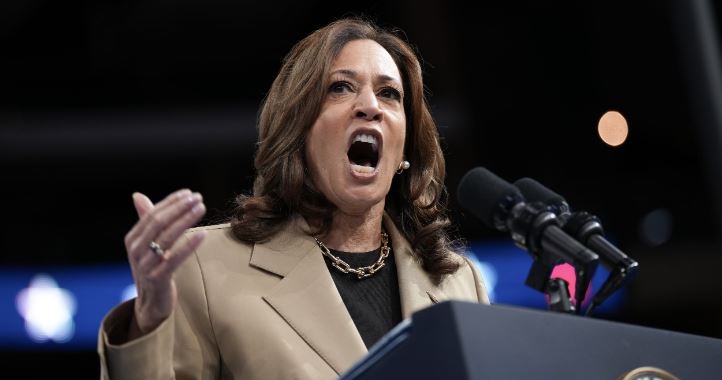In the lead-up to the upcoming November election, the Trump-Vance campaign has taken a provocative stance by filing a Federal Election Commission (FEC) complaint against Kamala Harris’s presidential campaign and the British Labour Party. The complaint claims both entities are involved in illegal foreign contributions and actions that threaten the integrity of U.S. elections. At the center of this accusation is the allegation that the Labour Party, under the leadership of Keir Starmer, has dispatched nearly 100 staff members to actively participate in escalating Harris’s campaign efforts in crucial battleground states such as Nevada, North Carolina, Pennsylvania, and Virginia. According to the Trump-Vance team, this operation constitutes a blatant violation of American election laws, which expressly prohibit foreign interference in domestic electoral processes.
The foundation for these serious accusations was laid by a now-deleted LinkedIn post from Sofia Patel, the Labour Party’s head of operations. In her post, Patel claimed responsibility for mobilizing a significant contingent of Labour Party staff, emphasizing that nearly 100 operatives were headed to the U.S. to bolster Harris’s campaign efforts in pivotal states. Furthermore, she offered assistance with “sorting housing” for these operatives, thereby raising alarms about the direct foreign involvement in the U.S. political landscape. The implications of such activities could undermine public confidence in the integrity of the electoral process, provoking concern among both political opponents and the general electorate regarding the influence of foreign entities in American politics.
Following the emergence of these revelations, the Trump-Vance campaign took immediate action, filing a formal complaint with the FEC demanding an investigation into what they refer to as a “foreign interference scheme.” The campaign’s press release underscored the urgency of this issue, citing the historical precedent of foreign intervention in American politics and how it had not ended favorably in the past. They framed their allegations as pivotal in protecting American self-governance and the principles established by the Founders, while simultaneously accusing the Harris campaign of resorting to desperate measures to garner support from abroad, rather than engaging with American voters.
Susie Wiles, co-manager of the Trump-Vance campaign, reiterated these concerns, stating that the forthcoming election would see Americans resisting what she described as undue foreign influence, reminiscent of the revolutionary spirit of 1776. Wiles asserted that the Harris-Walz campaign’s alleged acceptance of foreign assistance was indicative of a broader pattern of anti-American sentiment. She emphasized that Trump’s focus on American strength and an “America First” policy resonates with voters, projecting confidence in the idea that the American public would outright reject foreign meddling in domestic affairs.
The controversy surrounding the Labour Party’s participation in U.S. elections not only raises questions about the legality of their actions but also reflects a significant ideological divide. The Trump campaign’s stance positions the Labour Party’s influence as a direct threat to American values and political autonomy, asserting that Kamala Harris’s associations with foreign elements underscore the perceived dangers of increasingly liberal policies. The assertion that Harris is in league with foreign operatives serves to galvanize the Republican base and frame the election as a critical juncture for safeguarding American interests.
In conclusion, the Trump-Vance campaign’s complaint represents a broader narrative surrounding election integrity, emphasizing national sovereignty in the face of foreign influence. As the election draws near, this confrontation may not only shape the dialogue among candidates but also influence voter perception and turnout. The allegations against Harris’s campaign and the Labour Party further underscore the intense partisan climate and the urgency with which both sides are preparing to defend their vision for America’s future. The ramifications of this situation could extend well beyond the current election cycle, potentially establishing precedents regarding foreign involvement in U.S. elections and setting the tone for future electoral battles.

